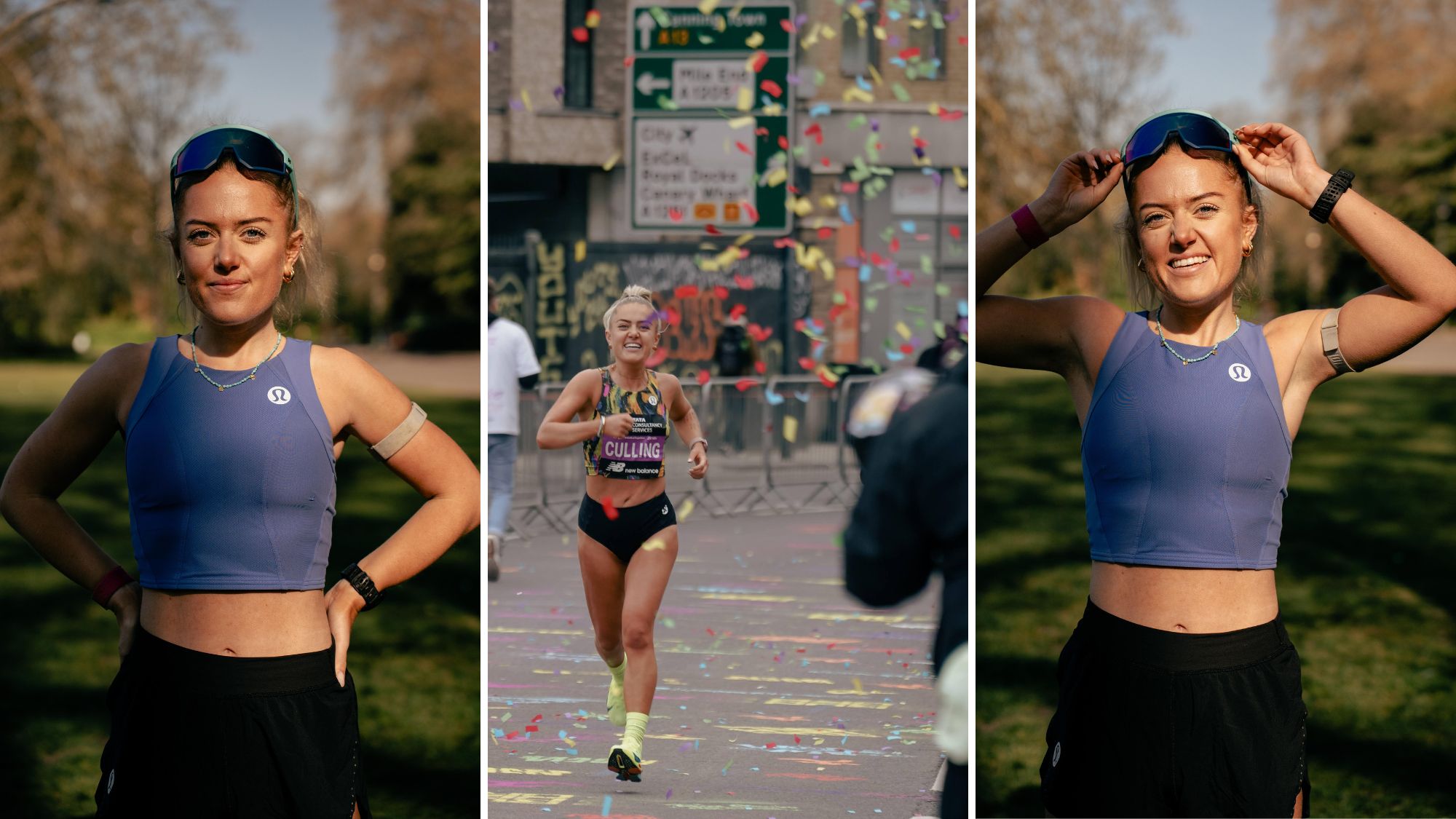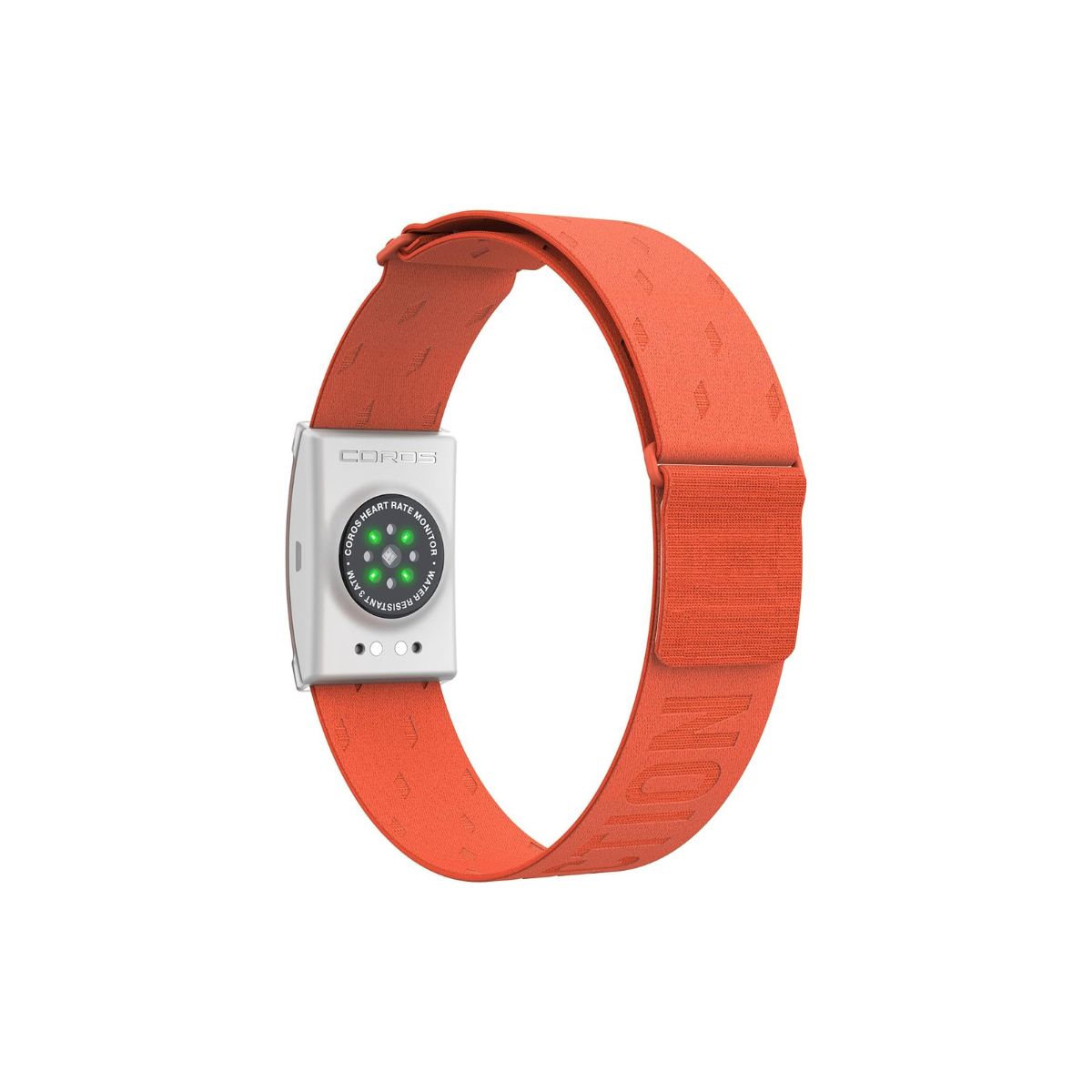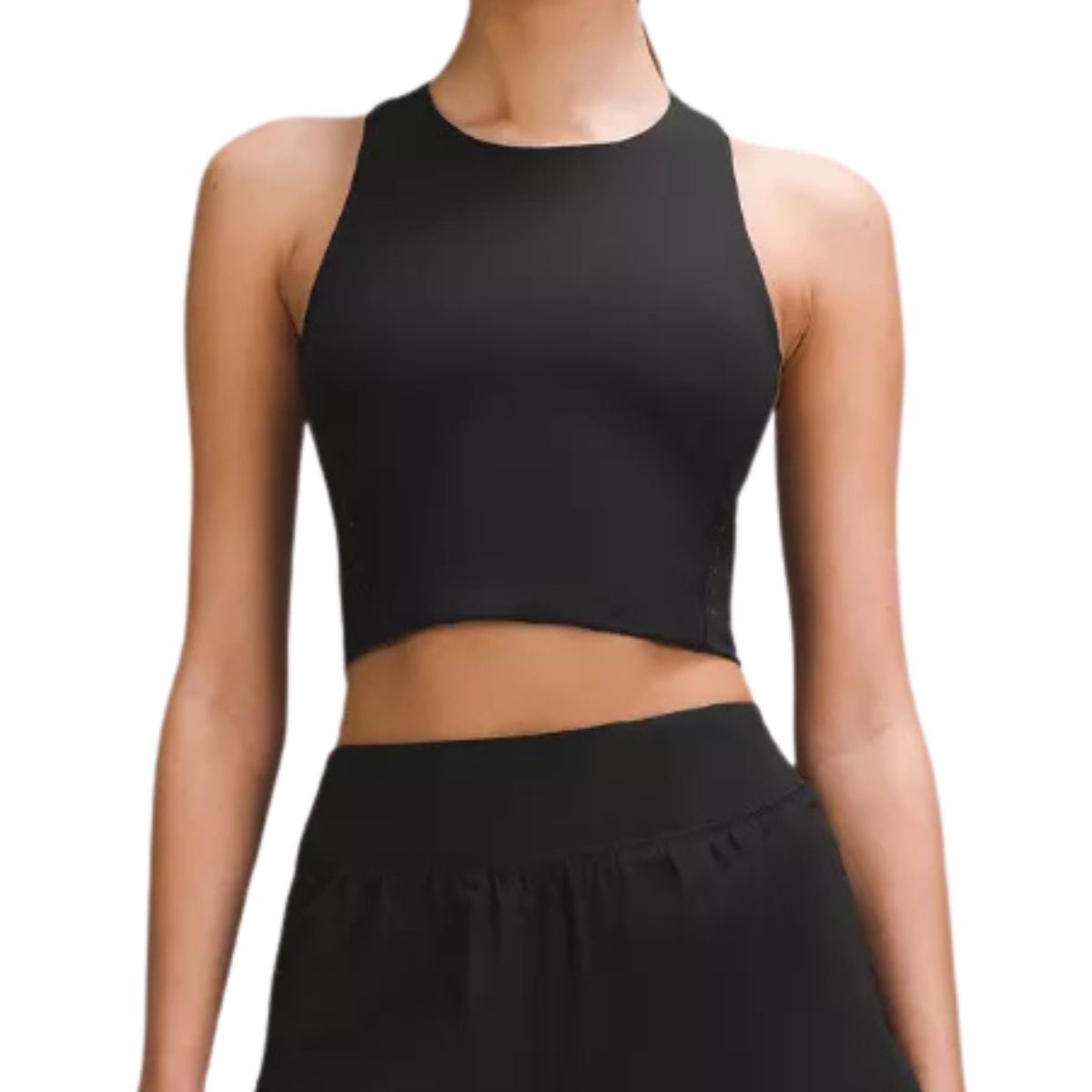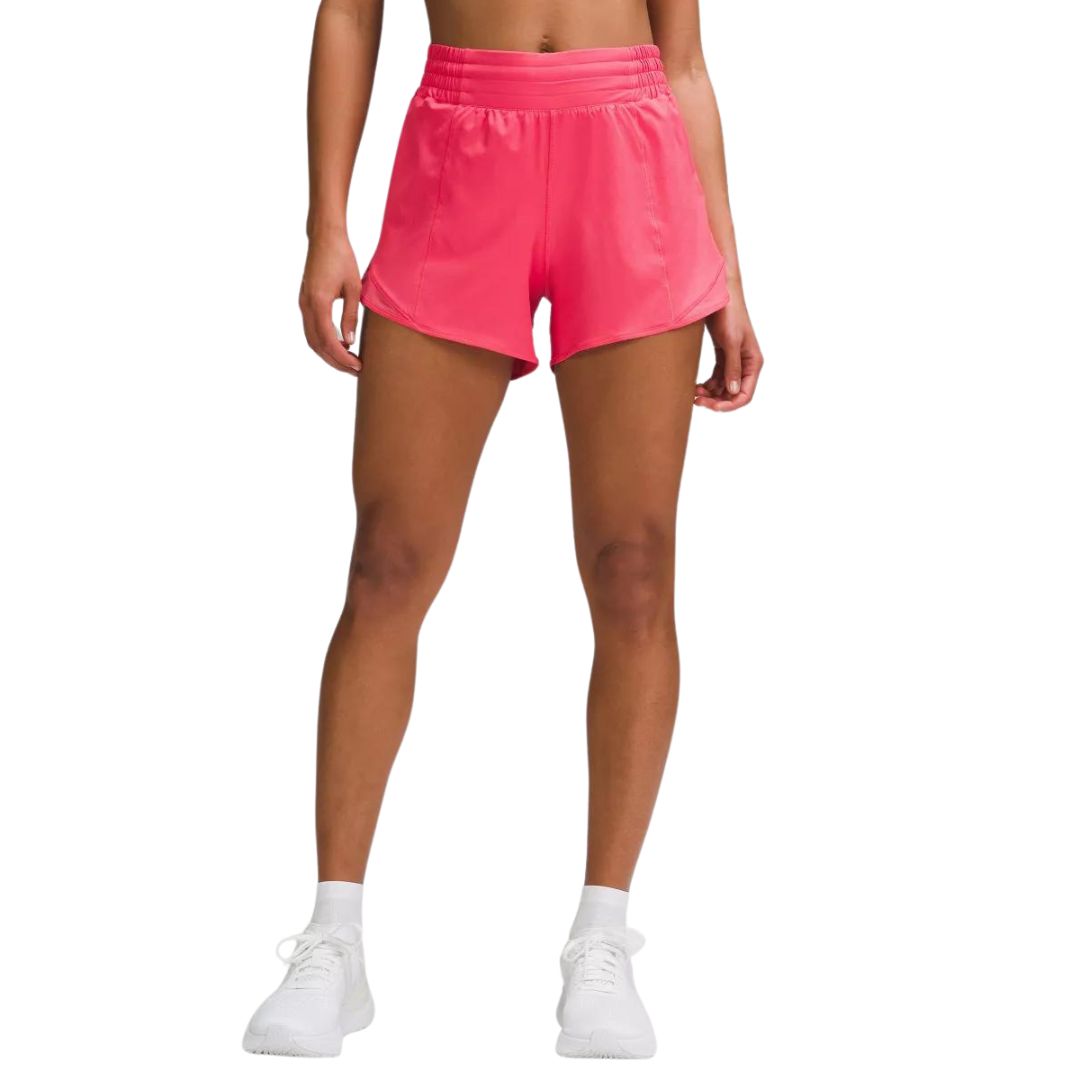I'd never run a marathon before - six years on, I'm one of the UK's fastest female marathoners. Here's how I train every week
Serious inspo, served.

If you've got even one toe in the running world, you'll have heard of Anya Culling. She's one of the fastest female marathoners in the UK, a lululemon ambassador, and a run coach for the raved-about training app Runna (which, in news that reverberated throughout the running world, was acquired by training giant Strava just last week).
She's lacing up again and will be on the London Marathon start line this morning, after what she's described exclusively to Marie Claire UK as one of her favourite training cycles ever.
Anya's an icon, a legend, and an inspiration to so many, inspiring her near 140k Instagram followers daily with her track sessions, motivational quotes, and fuelling strategies.
But what's particularly fascinating about the athlete isn't her fitness, speed or positivity - as inspiring as those things all are. No, the interesting part is that she hasn't always been a runner, and didn't run regularly until the age of 21. In fact, she used to walk during her school cross country lessons. And her first ever London Marathon, which she ran back in 2019, took her 4 hours and 34 minutes.
The rest, as they say, is history - because the next London Marathon she raced was in 2022, where she banked a staggeringly fast time of 2 hours and 36 minutes.
Loved online for her uplifting running advice, can-do attitude and colour-coordinated outfits, she's inspiring a nation of women to give running a go and pursue blue sky dreams - because she's living proof that achieving the seemingly impossible is, in fact, possible, if you're willing to work hard.
Interested to learn more about how Anya trains to compete at such an impressive level? Below, she shares what a week of training looks like, as well as some invaluable training hacks, mindset tools, and fueling tips. Do note, though: the below routine isn't recommended for regular runners, with coaches advising aiming for three to four weeks if you're marathon training as a beginner or someone with a nine-to-five.
Celebrity news, beauty, fashion advice, and fascinating features, delivered straight to your inbox!
Keen to read more advice about running a marathon? We've got you covered with expert training tips for a marathon, running tips for beginners, and guides on how to run faster (hint: speedwork training) and how to run further. Don't miss our buying guides to the best running shoes for women, best running shorts, best hydration vests and best sports caps, either.
What a week of training looks like for athlete Anya Culling
What does a week of marathon training look like for Anya?
"A normal week in training definitely varies a lot depending on what my goals are. Running is a constant in my life all year round, but I like to do a short, focused block before each race where my mileage and intensity will increase."
"For the London Marathon, I only did an eight-week training block. A normal week in my training for this looked like:
- Monday: A double easy day. 10km easy in the morning and 8km easy in the afternoon.
- Tuesday: Another double day. I head to the track in the morning, aiming for around 8 km volume (think 8 x 1 km or 20 x 400m, plus warm up and cool down). I'll also bank an easy 8km double in the evening.
- Wednesday: An easy midweek medium long run. I normally aim for 16 to 18km.
- Thursday: A tempo day. I either aim for a steady block run (e.g 16km at a steady, slightly slower than marathon pace, pace). I'll also often squeeze in another easy jog in the evening of around 8km to shake out the legs.
- Friday: A rest day. I love an ice bath and a sauna.
- Saturday: An easy run, normally 14 to 16km.
- Sunday: A marathon-pace session. This involves a long run with stints at my marathon pace, followed by a jog recovery between reps.
"I have a love, hate relationship with track sessions - I like to say I only have one gear, one pace and that’s marathon pace so running fast scares me but that’s why I need to make sure I do these track sessions. And because I have to work so hard to get my fast twitch muscles firing, it’s the most rewarding session of the week."
"It’s also the only run I religiously do with a group, Clapham Chasers. It holds me accountable and chasing people no doubt makes me run faster."
"My least favourite session of the week? This block I can honestly say I've loved every minute of training, so it's a hard question. If I had to choose, I'd either say the Wednesday midweek longer run or tempo on Thursday. While my Wednesday session is only an easy run, my legs are normally like lead from the track session the day before, meaning it often feels anything but easy. Similarly, my tempo session on Thursday often still feels hard. I find tempo a little daunting because it’s often long reps, faster than marathon pace. That said, it’s manageable because I know it’s a shorter session than the weekend long run and it’s rest day Friday then next day."
A post shared by Anya Culling (@a.culling)
A photo posted by on
How does Anya fuel?
"Fuelling is really important for performance. I've taken huge inspiration from cycling races recently - cyclists have unbelievable endurance engines and are constantly proving that the winner, more often than not, is the person who can take on the most carbs per hour."
"I never train fasted now, and it's transformed my running. Fueling sessions starts the day before, where I'll have high-carb meals and hydrate a lot. I normally have one or two energy bars the morning before a hard run - I've been loving Maurten Solids and STYRKR bars recently."
"During my runs, I'll have a Maurten gel every 25 minutes if my run is over an hour long. Often, you might feel like you don’t need a gel on a run, but you will recover so much better if you fuel well."
"I normally get back from hard runs feeling super hungry, so I immediately start carb loading again for the next one. Marathon training is a constant cycle of being either ravenous or so full I can’t move."
"For me, fuelling is all about giving my body the fuel it needs to perform at its best, and I really focus on what my body can do, rather than what it looks like."
A post shared by Anya Culling (@a.culling)
A photo posted by on
How does Anya handle pre race nerves?
"Pre-race nerves are a good thing - they mean that you care. Plus, everyone else on that start line will be experiencing the same nerves, so you're not alone."
"I remind myself that nerves are just energy - and energy, when channelled with purpose, becomes fuel."
"The week before a race, when I am full of confidence and in a good frame of mind, I'll sit and write a note to myself reminding myself of all the reasons why I am going to smash this race, of all the training I have done, and of how strong I am. That way, when I inevitably panic as the pre-nerves kick in, I can reread it and remind myself that I've got this."
"I'm at the point of marathon training where I think about the race every minute of every day, so there’s a lot of visualisation. Before I even get to the start line, I’ve already seen the race in my mind dozens of times. I like to use the spare time in the taper to visualise the day. I picture how I’d like it to go, what I'm going to do in every scenario, and how I am going to feel so that I'm prepared for everything on race day."
"You have to believe it’s possible to achieve your dreams. On race day, when I step up to that line, I’m not stepping into the unknown - I’m stepping into a story I’ve already lived in my mind. And that belief? That quiet confidence? It changes everything. Visualise your greatness, play the whole movie in your head, then go out there and make it real."
A post shared by Anya Culling (@a.culling)
A photo posted by on
What are Anya's race day rituals?
"I like to write a mantra on my hand for when the going gets tough. Something as simple as ‘smile’, which I had written on my hand last year to remind myself to relax and have a good time."
"I will also write my splits on my arm, what pace I want to go through each 5km in and a little asterisk by the km I plan to take a gel. I used to be more superstitious, but I love my boyfriend’s outlook, which is literally ‘just run’, don’t overcomplicate or overthink it. There’s one job, let’s get it done. He's more practical than I could ever be."
"One bit of advice that I wish I'd known about running training before starting out? Consistency really is key. If you are not being consistent with your running, skipping runs, or not doing harder workouts, I'd take a step back and actually make the training easier. That way it’s more achievable, and then you can build the mileage and intensity, which is so much easier when you have momentum with your training.
A post shared by Anya Culling (@a.culling)
A photo posted by on
How many runs a week should you aim for as a beginner?
"I'd advise getting in a good routine with your running before you start focused training."
"Once you're comfortable and want to challenge yourself more, aiming for three runs per week is a solid and sustainable starting point. It strikes the perfect balance between building consistency and giving your body enough time to recover and adapt."
"Try the following:
- Day 1: A short, easy-paced run to focus on form and being comfortable.
- Day 2: A run-walk session, which can progress to an interval/tempo effort to build endurance.
- Day 3: A relaxed longer run, maybe on a trail or with a friend to brunch, to keep it fun and pressure-free.
"And remember - it’s not about how fast or how far, it’s your journey and don’t compare it to anyone else's. It’s about showing up, listening to your body, and creating a routine you can actually enjoy. That’s how I started out, the times definitely were just a knock on effect, never the focus."
A post shared by Anya Culling (@a.culling)
A photo posted by on
Shop Anya's go-to kit now:

"My COROS heart rate monitor has been my favourite gadget this block. I have been really monitoring my heart rate as the most accurate indicator of my fitness - in short, if you are running the same run and the same pace as normal but your heart rate is lower than previously, generally it indicates you are fitter."

Ally Head is Marie Claire UK's Senior Health and Sustainability Editor, nine-time marathoner, and Boston Qualifying runner. Day-to-day, she heads up all strategy for her pillars, working across commissioning, features, and e-commerce, reporting on the latest health updates, writing the must-read wellness content, and rounding up the genuinely sustainable and squat-proof gym leggings worth *adding to basket*. She also spearheads the brand's annual Women in Sport covers, interviewing and shooting the likes of Mary Earps, Millie Bright, Daryll Neita, and Lavaia Nielsen. She's won a BSME for her sustainability work, regularly hosts panels and presents for events like the Sustainability Awards, and is a stickler for a strong stat, too, seeing over nine million total impressions on the January 2023 Wellness Issue she oversaw. Follow Ally on Instagram for more or get in touch.


